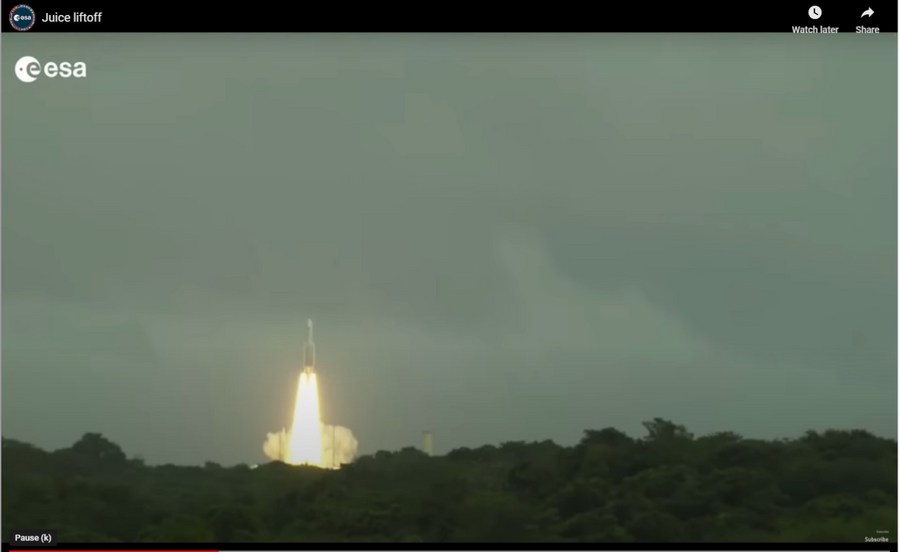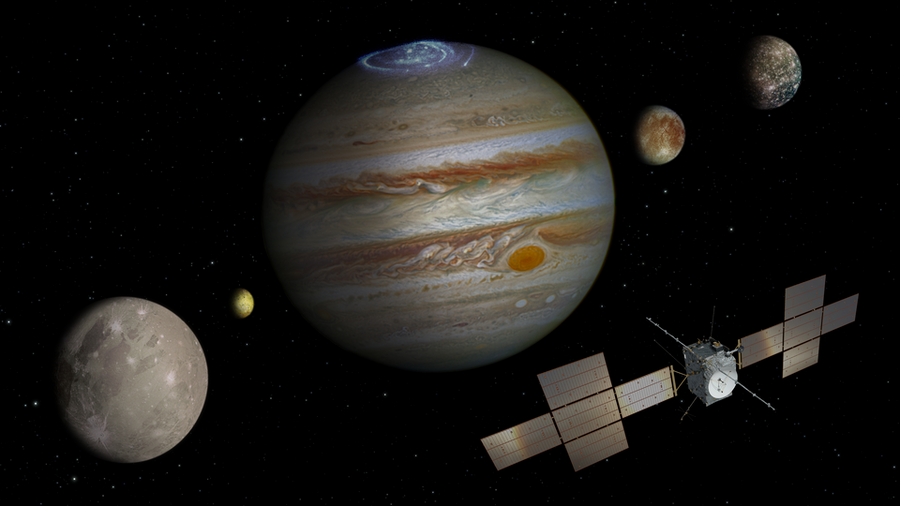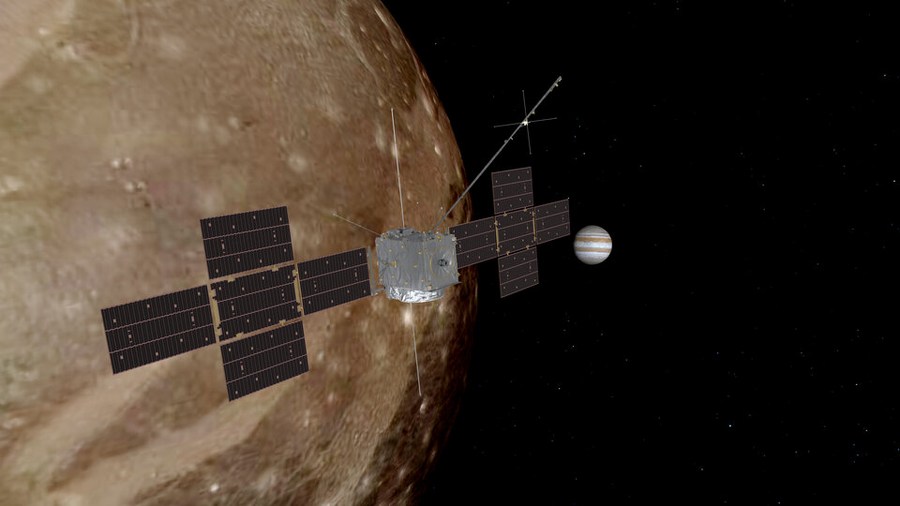
ESA's latest interplanetary mission, Juice, lifted off on an Ariane 5 rocket from Europe's Spaceport in French Guiana, at 14:14 CEST on April 14, 2023 to begin its eight-year journey to Jupiter. (a screenshot from ESA website)
The successful launch marks the beginning of an ambitious voyage to uncover the secrets of the ocean worlds on Jupiter's three largest moons: Europa, Ganymede, and Callisto.
PARIS, April 14 (Xinhua) -- The European Space Agency (ESA) launched on Friday an Ariane 5 rocket carrying its Jupiter Icy Moons Explorer (Juice) from Europe's Spaceport in French Guiana.
According to the ESA, the successful launch marks the beginning of an ambitious voyage to uncover the secrets of the ocean worlds on Jupiter's three largest moons: Europa, Ganymede, and Callisto, which hold quantities of water under their surfaces in volumes far greater than in Earth's oceans.

An artist's impression of exploring Jupiter. (ESA)
"These planet-sized moons offer us tantalizing hints that conditions for life could exist other than here on our 'pale blue dot'," the ESA said in its press release.
Over the next two-and-half weeks, Juice will deploy its various antennas and instrument booms, including a 16-meter-long radar antenna, a 10.6-meter-long magnetometer boom, and various other instruments that will study the environment of Jupiter and the subsurface of the icy moons, the agency said.

An artist's impression of exploring Jupiter. (ESA)
Juice will also monitor Jupiter's complex magnetic, radiation, and plasma environment in depth and its interplay with the moons, thus studying the Jupiter system as an archetype for gas giant systems across the Universe.
Juice has been designed for an eight-year cruise with flybys of Earth and Venus to slingshot it to Jupiter. It will make 35 flybys of the three large moons while orbiting Jupiter, before changing orbits to Ganymede, said the agency. ■












